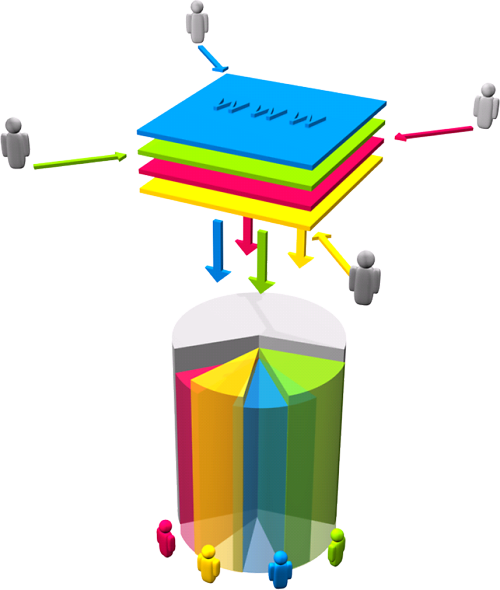
Brand sustainability Visia is working hard to get the most of the corporate style guide. We are experts in maximizing the brand exposure while using the real estate and page elopements to convey the message, reach the users and turn visitors into clients. There are many ways to comply, we choose to exceed.
Integrating the legacy into the new application Each company comes with its own business model and existing legacy systems in place. Our task is to seamlessly plug the new web application into the life structures and prevent or minimize interruptions in daily business routine.
Considerations and features integrated authoring environment, separation of content and presentation, multi-user authoring, content reuse, multilanguage support, metadata creation, non-technical authoring, ease of use, and many more.
We Serve All Industries
We stay on top of our industry so we can help you in yours.
Document management made easy.
Automatic updates with the correct company data and visual assets, make it effortless for employees to follow branding guidelines and stay compliant.

Customer relationship management (CRM) is a term that refers to practices, strategies and technologies that companies use to manage and analyze customer interactions and data throughout the customer lifecycle, with the goal of improving business relationships with customers, assisting in customer retention and driving sales growth. CRM systems are designed to compile information on customers across different channels -- or points of contact between the customer and the company -- which could include the company's website, telephone, live chat, direct mail, marketing materials and social media. CRM systems can also give customer-facing staff detailed information on customers' personal information, purchase history, buying preferences and concerns.
CRM application consolidates customer information and documents into a single CRM database so business users can more easily access and manage it. The other main functions of this application include recording various customer interactions (over email, phone calls, social media or other channels, depending on system capabilities), automating various workflow processes such as tasks, calendars and alerts, and giving managers the ability to track performance and productivity based on information logged within the system.
For all of the advancements in CRM technology, without the proper management, a CRM system can become little more than a glorified database where customer information is stored. Data sets need to be connected, distributed and organized so that users can easily access the information they need.

Marketing automation: CRM tools with marketing automation capabilities can automate repetitive tasks to enhance marketing efforts to customers at different points in the lifecycle. For example, as sales prospects come into the system, the system might automatically send them marketing materials, typically via email or social media, with the goal of turning a sales lead into a full-fledged customer.
Sales force automation: Also known as sales force management, sales force automation is meant to prevent duplicate efforts between a salesperson and a customer. A CRM system can help achieve this by automatically tracking all contact and follow-ups between both sides.
Contact center automation: Designed to reduce tedious aspects of a contact center agent's job, contact center automation might include pre-recorded audio that assists in customer problem-solving and information dissemination. Various software tools that integrate with the agent's desktop tools can handle customer requests in order to cut down the time of calls and simplify customer service processes.
Geolocation technology, or location-based services: Some CRM systems include technology that can create geographic marketing campaigns based on customers' physical locations, sometimes integrating with popular location-based GPS apps. Geolocation technology can also be used as a networking or contact management tool in order to find sales prospects based on location.
Solving global business problems by accelerating the adoption of technology.

Our cross-domain expertise in applications, networking, security, and storage parallels the accelerating convergence of these technologies. Because we embrace all of these technologies, we are uniquely positioned to deliver true solutions-oriented consulting and education. We are more than just senior technologists - we are also experienced business leaders who understand that technology succeeds only when it is aligned with business objectives.

4 Reasons why you should custom-build your CRM system
– Your exact needs, no more, no less
– Better Integration with your business operation
– Escape the draconian pricing per user
– CRM-centric apps for different departments